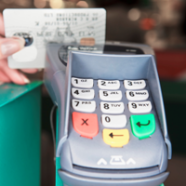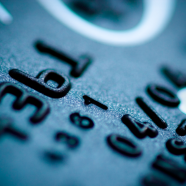Credit Card Processing Explained
Credit card processing also referred to as merchant processing is a highly competitive industry that uses multiple channels to allow businesses to accept credit and debit cards as a form of payment. These channels include the card issuers such as banks and credit unions, which issue card brands such as Visa and MasterCard, the merchant processors who take on the risk, and the acquiring banks that transfer the funds. The Reason for Fees From Processors Credit card processing is essentially a loan between the merchant and the processor. This is because the consumer will use his or her card for a purchase and the merchant will acquire the funds from that transaction generally within 48-72 hours even though the consumer may not pay the credit card bill for another month or longer. The merchant processors cover the non-payment risk of the consumer and in return charge a service fee typically group into tiered rates or as basis points. Visa and MasterCard create what is called the interchange rate, which is the rate they charge per transaction for their service and to cover fraud. The merchant processor then charges the merchant above and beyond that rate for holding the risk of the transaction and for generating profits. Qualifying for a Low Discount Rate Many merchants will qualify for relatively low rates especially if they are in the retail sector and are an established business. Some businesses especially start-ups, ecommerce (online) businesses, or businesses in certain industries fall into the category of high risk credit card processing. These high risk merchants will typically only be able to work with processing companies that specialize in supporting high risk merchants and high risk transactions. These merchants will pay fees that are somewhat higher than low risk merchants based upon the level of risk for each transaction. Merchant processors also charge additional line item fees, some of which are listed below… Statement fees – Monthly charge for paper or online transaction and settlement (batch) records. Authorization Fees – A charge in addition to the percentage or discount rate fee for every transaction made. This is commonly the only fee for debit card transactions. Settlement (Batch) Fees – A fee that is charged every time the merchant “batches” or does a settlement on their terminal, which is usually performed at the end of each business day. PCI Compliance Fees – Fees charged by processors to make sure their merchants are in accordance with the Payment Card Industry (PCI) standards and regulations. Monthly Minimum – Charge to the merchant if they do not reach a monthly processing minimum. How can I start processing? In order to start to accepting credit cards as a form of payment, a merchant is required to fill out a merchant application with a processing company. There may also be other required documents including business financials, articles of incorporation, bank information, copy of a personal identification card and possibly other depending on the type of business. If you are interested in exploring this business solution further follow the link below to apply. Click Here to Apply for a Merchant Account...
Read MoreTimeline of Major Events in Payment Processing
As we learned in payment processing, electronic money has a long and varied history. From Western Union’s advances in the late 1800’s to the release of the Google Wallet in 2011, the world has seen vast changes in the way that commerce is conducted on both a local and global scale. With advances in mobile technology and the continued prevalence of the internet, there is no limit to where payment processing can go in the next 140 years. Timeline of Major Events in Payment Processing 1871 – Western Union introduces money transfer 1914 – Western Union introduces first charge card 1918 – Federal reserve banks begin to move currency via telegraph 1939 – Concept of automatic teller machine created 1950 – Dinners club releases first plastic card limited to 27 restaurants in NYC 1958 – Bank of America realease the BankAmericard 1964 – IBM & American Airlines develop online reservation process 1968 – Modern ATM conceptualized 1973 – First ATM installed into the Chemical Bank in NYC 1979 – Michael Aldrich developed predecscorr to online shopping 1981 – Thomson Holidays, UK is first B2B online shopping 1982 – Minitel was introduced nationwide in France and used for online ordering. 1985 – Nissan UK sells cars and finance with credit checking online from dealers’ lots 1986 – Discover Card is unveiled at the Super Bowl 1989 – Visa adds electronic signature capability 1990 – Tim Berners-Lee writes the first web browser, WorldWideWeb, using a NeXT computer. 1994 – Netscape is released promoting online ordering and the needed for SSL encryption 1995 – Amazon.com launched by Jeff Bezos 1998 – PayPal and the idea of the eWallet developed 2000 – Dot.com bust 2002 – eBay acquires PayPal for $1.5 billion 2004 – Antitrust court ruling against Visa and MasterCard initiated 2006 – The Payment Card Industry Security Standards Council is formed 2008 – Groupon redefines how customers shop for discounts 2010 – Durbin Amendment introduced; aimed to reform credit / debit card fees 2011 – Google releases Google Wallet If we have missed any major milestones you feel should be added, please let us know by leaving it in the comments section below…...
Read MoreCard Payment Basics
In today’s marketplace, merchants are faced with a complex set of terminology and conflicting information when they look to set-up their payment processing options. In addition the payment card industry as well as the federal government are constantly changing rules and regulations when it comes to taking payment. From the most complex integrated solution to a single stand alone POS terminal, all card payments follow the same simple steps. How a Payment Card Transaction Works: A cardholder purchases goods or services from a merchant. The merchant sends the transaction information to an Acquirer (Merchant Bank) and is reimbursed for the sale less a discount rate. The Acquirer submits the transaction to the Issuing Bank for payment by either the MasterCard or Visa settlement system. The Issuer pays the Acquirer for the purchase through the settlement system The cardholder repays the Issuer for the goods or services originally purchased from the merchant. Below illustrates the process flow of a typical credit card transaction Merchants, large and small, established and brand new, benefit from accepting payment cards and telling their customers about it: Increased Sales – Customers spend more when they have options besides cash. An old truism says that the more ways you give a customer to pay, the more money you make. Customers paying with payment cards typically spend more. And the cost of accepting card payments is paid for and increases profit by the increase in gross sales. In other words, your business will enjoy higher average tickets and additional purchases that might not otherwise have been made. Customer Satisfaction Today’s customers demand the flexibility to pay How Where When they want. Electronic transactions save you time and money by… Automating manual store procedures Speeding checkout lines Providing better customer service Increasing cash flow Offering higher profits Whether it’s by debit or credit card or a specialty product, happy customers will be loyal customers. Safety and Slippage Electronic payments keep cash-on-hand at a minimum and reduce the opportunity for clerical mistakes and pilfering....
Read More








 Speak To A Specialist -
Speak To A Specialist -